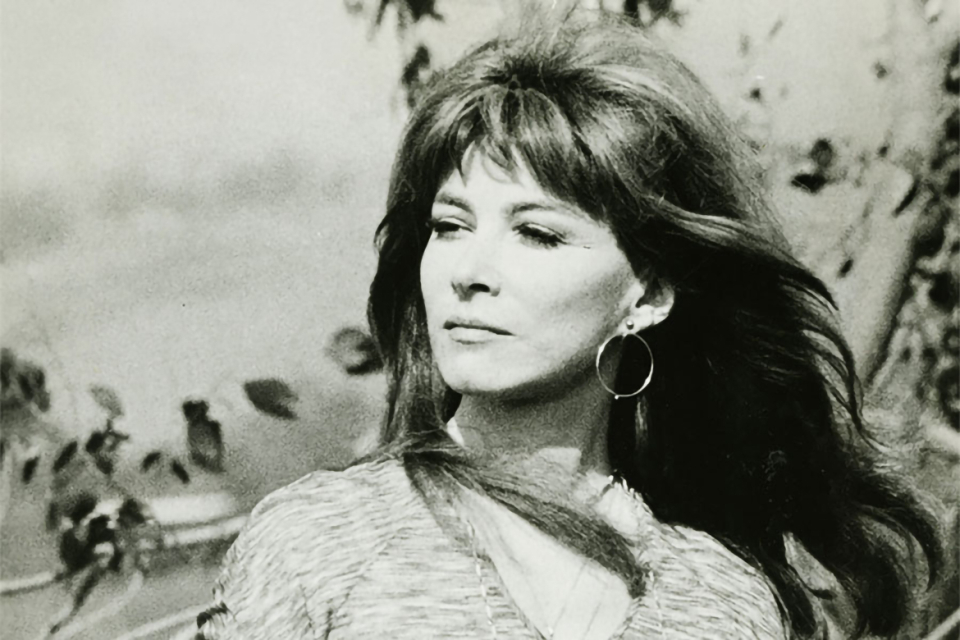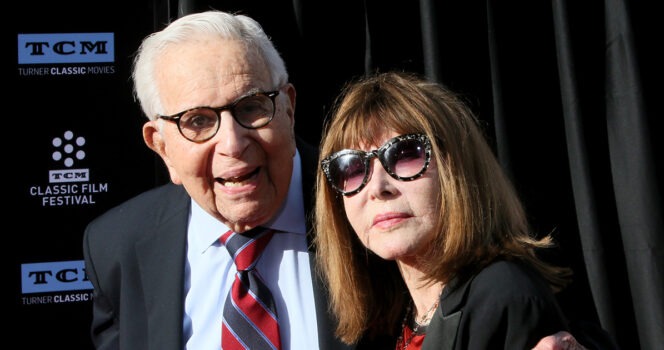During the 1950s, Hollywood was defined by elegance, glamour, and fierce competition. Among the many gifted performers of the time, Lee Grant stood out not only for her classic beauty and screen presence but also for her resilience during one of the most politically turbulent periods in entertainment history.
Grant’s career journey—from early acclaim to blacklisting and her eventual return—reflects both the challenges and the triumphs of an artist navigating a complex industry climate shaped by politics and power.

Rising Star of the 1950s
Born Lyova Haskell Rosenthal in New York City, Lee Grant began her professional career as a stage actress before making a successful transition to film. Her performance in Detective Story (1951), opposite Kirk Douglas, marked her Hollywood debut and earned her an Academy Award nomination for Best Supporting Actress. That same year, she received the Best Actress Award at the Cannes Film Festival, a prestigious international honor.
Grant’s talent was widely recognized by critics and audiences alike. She quickly became a sought-after actress for both her dramatic capabilities and screen charisma. Her early success suggested a promising future in an industry where acclaim did not always guarantee longevity.

The Blacklist and Its Impact
Despite her early achievements, Grant’s career was soon disrupted by the Hollywood blacklist, a consequence of the broader McCarthy-era investigations into alleged communist affiliations in the United States.
In 1951, following the death of actor J. Edward Bromberg, who had been questioned by the House Un-American Activities Committee (HUAC), Grant delivered a eulogy that reportedly criticized the political pressures faced by performers at the time. According to historical accounts, including those cited by CBS News, this public stance drew the attention of anti-communist investigators.
As a result, Grant was blacklisted from major studio productions, significantly limiting her employment opportunities in film and television for over a decade. She continued to perform in theater and found some work in smaller projects, but the effects of the blacklist were deeply felt throughout the 1950s and early 1960s.
The American Film Institute (AFI) and multiple academic sources, including the Paley Center for Media, have documented how political blacklisting disrupted the careers of numerous actors, writers, and directors during this era. Grant was among them, facing years of professional exclusion despite her proven talent.

A Triumphant Return
Lee Grant’s determination to continue acting eventually paid off. In the late 1960s and 1970s, she gradually reemerged on screen, taking roles in both television and film.
Her performance in the 1975 film Shampoo, directed by Hal Ashby and starring Warren Beatty, earned her the Academy Award for Best Supporting Actress. This marked a turning point in her career and demonstrated her lasting impact on the industry.
Over the following decades, she appeared in a variety of acclaimed projects including:
- Valley of the Dolls (1967)
- Columbo (TV series)
- Mulholland Drive (2001)
- Numerous made-for-TV movies and documentaries
She also transitioned behind the camera, directing several documentary films. Notably, she won a Directors Guild of America Award for her work on Nobody’s Child (1986), and her documentary Down and Out in America won the Academy Award for Best Documentary Feature in 1987.
Lee Grant Today and Her Enduring Legacy
In more recent years, Lee Grant has continued to appear at film festivals and retrospectives, often discussing her experiences with the blacklist and her career in Hollywood. In 2014, she published a memoir titled I Said Yes to Everything, which received positive reviews for its candid exploration of her life, work, and resilience.
Her presence at the TCM Classic Film Festival and other public events in the 2010s and 2020s underscores her continued relevance and the enduring appreciation for her contributions to American cinema.
According to the Academy of Motion Picture Arts and Sciences, Grant is among the few actors to have successfully transitioned from a politically fraught blacklist period to later Oscar-winning acclaim, demonstrating not only professional talent but personal perseverance.

Understanding the Broader Context
The Hollywood blacklist era is now widely studied as a cautionary chapter in American history. Organizations such as the Smithsonian Institution, UCLA Film & Television Archive, and Library of Congress have documented its long-term effects on the careers and lives of many industry professionals.
Lee Grant’s story is one of the most compelling case studies of that era—not because of a sudden fall from grace, but due to the systemic obstacles she faced and eventually overcame. Her career resurgence in the 1970s serves as a reminder that talent and perseverance can, over time, overcome even the most difficult setbacks.

Conclusion
Lee Grant may not be as frequently mentioned in contemporary discussions of classic Hollywood icons, but her story is essential to understanding both the opportunities and limitations that shaped the entertainment industry during the mid-20th century.
Her achievements—both before and after the blacklist—reflect an artist who refused to be silenced and who ultimately carved out a lasting legacy in American film and television.
Today, she stands not only as a symbol of timeless talent but also as a testament to the resilience of artists who continue to create despite adversity.

Sources:
Academy of Motion Picture Arts and Sciences (oscars.org)
American Film Institute (afi.com)
CBS News (cbsnews.com)
Directors Guild of America (dga.org)
The New York Times Archives
Library of Congress (loc.gov)
UCLA Film & Television Archive
